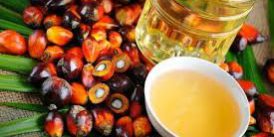A new report has found that more than half the Used Cooking Oil (UCO) used in Europe for biodiesel in 2019 was imported (1.5 million tonnes out of 2.8 million tonnes). The biggest share comes from China (34%) and about 20% comes from Malaysia and Indonesia, the world’s biggest producers of palm oil.
According to the report published today (30 June) by NGO Transport & Environment (T&E), the use of UCO for biodiesel in the EU27 and the UK grew again in 2019, from 2.6 million tonnes in 2018 to 2.8 last year.
Used Cooking Oils (UCO) are double-counted under the EU’s renewable energy directive because they can help decarbonise Europe’s transport sector. But last year, the UK and the Netherlands launched official investigations into companies which have allegedly been selling unsustainable UCO containing palm oil.
EURACTIV was recently informed that the European Commission does not have a “complete overview” of the origin of used cooking oils used for the production of biodiesel consumed in the EU.
But the current directive (RED) does not distinguish between domestically collected oils and those which are imported from third countries. And critics suggest some of it contains palm oil, which the EU decided to phase out in order to slow deforestation in tropical countries.
T&E hinted that it’s suspicious to see large supplies of UCO coming from Malaysia (12%) and Indonesia (7%), the world’s two biggest palm oil producers, and from China (34%).
“Due to the suspected fraud cases (currently under investigation), it is important to closely monitor these imports along the supply chain to ensure the UCO has actually really been used”, Cristina Mestre, biofuels manager with T&E, told EURACTIV.
“This is particularly important provided that UCO has other important uses outside of Europe (i.e. animal feed) so the displacement of this use could lead to deforestation and drainage of wetlands,” Mestre added.
Asked if domestically collected UCO should be differentiated from imported ones, she replied: “If sourced domestically and following a robust chain of custody, UCO can save greenhouse gas emissions compared to fossil fuels.”
She pointed out, however, the limited availability of sustainable used cooking oil for the transport fuels market, which has to be based on “robust waste collection schemes”.
“There’s no clarity about the sustainable volumes of UCO available. Therefore, European countries shouldn’t go above the ‘soft’ limit of 1.7% set by the EU law. Otherwise there’s a risk of increased imported UCO with weak traceability.”
But the European Waste-to-Advanced Biofuels Association (EWABA) does not share that view. EWABA’s Secretary-General, Angel Alberdi, said this question is tendentious as it asserts a false statement.
“Existing certification schemes make UCO one of the most highly regulated commodities in the world in terms of traceability to the source of origin, be it a street food vendor in China or a fast-food chain with hundreds of restaurants across Europe,” he told EURACTIV in late June.
Alberdi added that the rules are the same for all used cooking oils, whether imported or not, as all players have to comply with certification schemes approved by the European Commission from the point of origin.
Source: Euractiv.com










